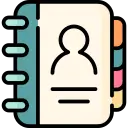PLEASE MATCH YOUR ASSIGNMENT QUESTIONS ACCORDING TO YOUR SESSION
IGNOU BEGE-145 (July 2024 – January 2025) Assignment Questions
Q1 Read the following passage carefully and answer the questions given below it.
India is currently in a favorable position to harness the benefits of a demographic dividend, an opportunity that arises when a country’s working-age population (15–64 years) is larger than its dependent population. This phase offers a unique potential for economic growth as a significant portion of the population can contribute productively to the economy, leading to higher savings, investment, and, ultimately, accelerated development. However, the demographic dividend is not an automatic advantage; it requires strategic investment in education, healthcare, and employment generation to transform this population into a skilled and healthy workforce.
Education is one of the foremost areas that requires attention. With nearly half of India’s population under 25, there is an urgent need to equip youth with skills that match market demands. Investments in vocational training, digital literacy, and STEM (Science, Technology, Engineering, and Mathematics) education will enable India’s youth to participate in high-growth sectors, such as technology, manufacturing, and services. Moreover, a focus on innovation and research is essential to cultivate an environment that promotes entrepreneurship, thereby creating more job opportunities.
Healthcare is another critical area. A healthy workforce is a productive workforce, and hence, access to quality healthcare services is crucial. Addressing challenges such as malnutrition, maternal health, and communicable diseases can reduce healthcare burdens and increase workforce productivity.
Also, creating job opportunities is vital. India needs to generate millions of jobs annually to absorb its growing workforce. This can be achieved by promoting sectors like manufacturing and digital services and supporting small and medium-sized enterprises (SMEs), which are often significant employment drivers.
One may argue that the demographic dividend presents India with an extraordinary economic opportunity. However, the key to unlocking this potential lies in effective policy planning, targeted investments, and fostering an inclusive economic environment. If properly managed, India’s young and dynamic population could propel the nation toward rapid economic development, potentially transforming it into a global powerhouse.
Questions:
1. What is the demographic dividend, and why is it significant for India?
2. Explain the role of education in realizing the demographic dividend for India.
3. How does healthcare impact the potential of a productive workforce?
4. Why is job creation essential in leveraging India’s demographic dividend?
5. What could be the potential outcome if India successfully harnesses its demographic dividend?
Q1 b) Pick out words from the passage which mean the same as the following:
i. Potential
ii. Increased
iii. Urgent
iv. Productive
v. Crucial
Q1c) What have you learnt in the passage above about demographic dividend?
Q2. Write short notes on any two of the following:
i. Define personality with a focus on blind spots? Give examples.
ii. Major aspects of people management skills?
iii. How do we enhance teamwork?
iv. How to develop a problem solving aptitude?
Q3 a) Here are the answers to some questions. What are the questions?
i. When ____________________?
I started learning French two years ago.
ii. Who ____________________?
My first French teacher was Ms. Sapna.
iii. How long ____________________?
I practiced French for about an hour every day.
iv. Why ____________________?
I wanted to learn French to travel more easily in France.
v. Have you ____________________?
Yes, I have taken an advanced French language exam.
Q3 b) Complete the following passage with either the present perfect or past simple tense of the verbs in brackets.
In recent years, the role of technology in education _____ (transform) significantly, reshaping how students learn and teachers instruct. With the advent of digital platforms, many institutions _____ (adopt) online learning methods to supplement traditional classroom teaching. This shift _____ (begin) a few decades ago but _____ (accelerate) due to the COVID-19 pandemic.
E-learning platforms _____ (gain) popularity worldwide, allowing students to access knowledge from anywhere, at any time. While some schools initially _____ (hesitate) to embrace this technology, most now see its benefits in making education more accessible. Teachers _____ (adapt) to new tools and methodologies to engage students virtually, and many students _____ (discover) a preference for this flexible learning approach.
Also, digital tools _____ (open) up new ways for teachers to track student progress and personalize instruction, leading to better learning outcomes. As technology continues to evolve, educators _____ (find) innovative ways to integrate it into their curriculum, ensuring that learning remains engaging and relevant in a rapidly changing world.
Q3 c) Complete these sentences with the correct comparative or superlative form of the adjectives in Brackets.
i. Email is often considered a _____ (convenient) method of communication than traditional mail.
ii. Social media platforms today are _____ (popular) than they were a decade ago.
iii. Among all the devices, smartphones are the _____ (useful) for staying connected on the go.
iv. Video streaming services are becoming _____ (affordable) each year.
v. Out of all communication methods, face-to-face interaction is still considered the _____ (effective) for building relationships.
Q4 Write a report of Youth Festival organised in your institution. Describe the following details:
i. The event timeline
ii. Major activities organised
iii. Response of the public
iv. Your contribution to the event
Q5 Write a dialogue between two friends talking about using technology to further the educational outcomes.
IGNOU BEGE-145 (July 2023 – January 2024) Assignment Questions
Q1 Read the following passage carefully and answer the questions given below it.
The modern workplace is a diverse and dynamic environment that thrives on the contributions of individuals from various backgrounds. However, one aspect of diversity that has gained increasing attention is disability. Disabilities encompass a wide range of conditions, both visible and invisible, that can impact an individual’s mobility, sensory perception, cognitive functions, and more. In recent years, there has been a growing awareness of the need to create inclusive and accommodating workplaces that embrace employees with disabilities.
Creating an inclusive workplace involves more than just meeting legal requirements; it requires a shift in mindset and organizational culture. Employers are increasingly recognizing that individuals with disabilities bring unique perspectives, talents, and strengths to the table. These individuals often demonstrate remarkable resilience, adaptability, and problem-solving skills, qualities that can benefit teams and companies as a whole. Reasonable accommodations play a pivotal role in enabling employees with disabilities to perform at their best. These accommodations can range from physical modifications to the workspace, such as ramps or accessible technology, to flexible work arrangements that are empathetic to an employee’s needs. By providing these accommodations, employers not only empower individuals with disabilities to contribute effectively but also demonstrate a commitment to fostering an environment of equality and respect.
However, challenges remain. Stigma and misconceptions surrounding disabilities can persist, leading to biases and exclusion. Awareness campaigns and training initiatives can help dismantle these barriers and promote a more empathetic and informed work environment. Additionally, ensuring that hiring processes and career advancement opportunities are inclusive can further encourage the integration of individuals with disabilities into the workforce.
Ultimately, an inclusive workplace benefits everyone. It promotes a sense of belonging and community among employees, leading to higher job satisfaction and retention rates. Moreover, when companies value diversity in all its forms, they often experience improved creativity, innovation, and problem-solving, as different perspectives and experiences converge to drive progress.
In conclusion, disability in the workplace is a multifaceted topic that demands attention and action. By fostering an inclusive culture, providing reasonable accommodations, and challenging stereotypes, employers can create environments where individuals with disabilities can thrive and contribute meaningfully. Embracing disability in the workplace is not just a legal or moral obligation; it is an investment in a richer, more diverse, and ultimately more successful working environment.
Q1 a) Answer the following questions
i. What is the significance of creating an inclusive workplace environment?
ii. How can reasonable accommodations positively impact employees with disabilities?
iii. What role do awareness campaigns and training initiatives play in addressing challenges related to disabilities in the workplace?
iv. How does an inclusive workplace benefit both employees and companies?
v. What are some potential challenges individuals with disabilities might face in the workplace?
Q1 b) Pick out words from the passage which mean the same as the following:
i. A variety of different people, ideas, and characteristics (para 1)
ii. The ability to understand and share the feelings and perspectives of others (para 3)
iii. To give someone the tools, authority, or confidence to take control of their situation and make decisions (para 3)
iv. Preferences for or against individuals or groups, often without conscious awareness (para 4)
v. Negative perceptions or stereotypes that lead to discrimination or exclusion (para 4)
Q1 c) What have you learnt in the passage above about creating a disability-inclusive workplace?
Q2 Write short notes on any two of the following:
i. What are blind spots in personality? Give examples.
ii. What are some steps to improve people management skills?
iii. How do biases affect teamwork?
iv. What are some factors that influence a personality?
Q3 a) Here are the answers to some questions. What are the questions?
i. Where ____________________?
I went to a school in Delhi.
ii. Which college or university ____________________?
I attended IGNOU for my higher studies.
iii. What ____________________?
My field of study was English language.
iv. Have you ____________________?
Yes, I completed an online course on English grammar.
v. Have you ____________________?
Yes, I have considered pursuing higher studies in English language.
Q3 b) Complete the following passage with either the present perfect or past simple tense of the verbs in brackets
In the diverse and culturally rich land of India, English occupies a unique position as a foreign language. It (1) _____ (serve) as a bridge connecting the nation’s linguistic diversity and providing access to global opportunities. India’s historical connection with English (2) _____ (date) back to the colonial era when it (3) _____ (introduce) by the British. Over time, English (4) _____ (evolve) into an integral part of the country’s education system, professional landscape, and communication networks.
India’s linguistic landscape is astonishingly varied, encompassing hundreds of languages and dialects. This linguistic diversity can sometimes act as a barrier to effective communication between different regions. English, with its status as a second language, (5) _____ (provide) a common ground for Indians from various linguistic backgrounds to interact, share ideas, and collaborate seamlessly. It (6) _____ (act) as a lingua franca, enabling individuals to overcome linguistic barriers and (7) _____ (engage) in both national and international discourse.
The Indian education system (8) _____ (embrace) English as a vital tool for academic and professional advancement. Many private schools and prestigious institutions (9) _____ (conduct) their classes in English, considering it a language of upward mobility. Proficiency in English (10) _____ (open) doors to higher education opportunities abroad and enhances employability in various sectors such as IT, business, medicine, and academia.
Q3 c) Complete these sentences with the correct comparative or superlative form of the adjectives in brackets
i. The internet is the _____ (fast) mode of communication.
ii. Social media is the _____ (late) fashion amongst teenagers.
iii. The large number of people make social media the _____ (rich) source of creativity.
iv. With billions of users, it is _____ (extensive) network in existence.
v. Constant innovations make the internet ____ (dynamic).
Q4 Write a report of an event in your institution. Describe the following details:
i. The event timeline
ii. Major activities organised
iii. Response of the public
iv. Your contribution to the event
Q5 Write a dialogue between two friends talking about adjusting to an academic life post-pandemic.










